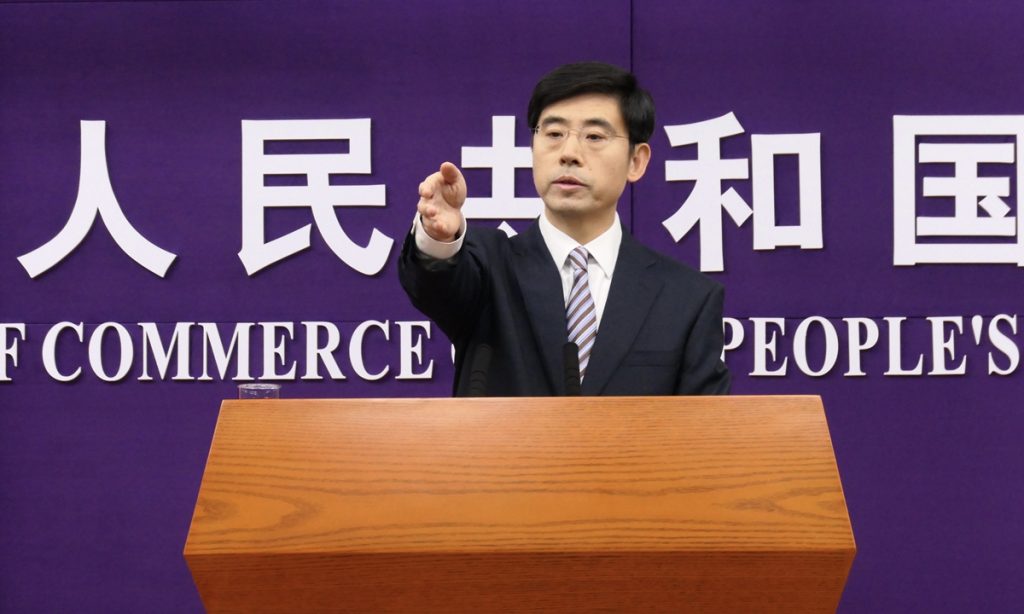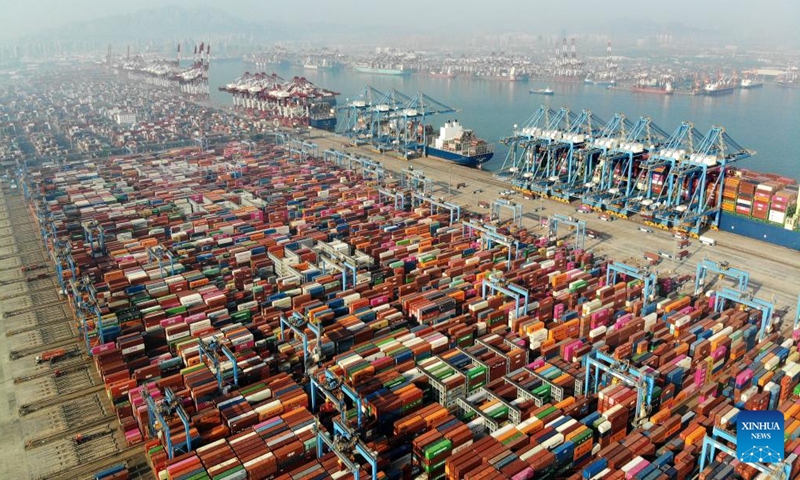Australian China hand expects PM's visit to promote academic exchanges with China, urges US 'not to go to war over Taiwan'

Editor's Note:
Academic and cultural exchanges have long been an important window of communication, allowing for the exploration of common ground, dispelling misconceptions and building trust, identifying shared challenges, and developing innovative solutions between China and Australia. Australian Prime Minister Anthony Albanese's recent visit to China brought fresh expectations that this window could be reopened after diplomatic relations soured between the two trading partners at the start of the COVID-19 pandemic.
Global Times reporters Hu Yuwei and Fan Wei interviewed two outstanding scholars from China and Australia respectively to hear their comments on Albanese's visit and what they anticipate for the future of people-to-people exchanges.
A veteran China hand in Australia, Jocelyn Chey, Australia's first cultural counselor to China, felt encouraged by Albanese's visit to China and said that Australian academics are hopeful that they will be able to engage more with their Chinese counterparts and contribute more to the understanding of China, while a prominent Chinese academic Chen Hong recalled his visa being cancelled on unfounded security grounds in 2020 and underlined his appeal for a more transparent, open, and non-political way of dealing with normal people-to-people and academic exchanges between the two countries.
In a recent exclusive interview with the Global Times, Jocelyn Chey, a visiting professor at the University of Sydney, said that Australian scholars who study or interact with China have encountered difficulties in recent years owing to new government regulations and increased tensions between China and Australia, and this has affected their research and teaching.
The prominent scholar believes that the Australian Prime Minister Anthony Albanese's visit to China is a sign that "these tensions are easing."
"I am immensely encouraged by Albanese's visit to China. It is my firm belief that isolation is always a bad thing, and that dialogue is essential for relationships to be sustained or nourished. This is the most important aspect of the visit, far outweighing any specific outcome in importance," said Chey.
Australian academics are hopeful that they will be able to engage more with their Chinese counterparts and contribute more to the understanding of China, its culture, and history, she said.
Upon invitation, Chey recently came to China to attend a symposium at a major Australian Studies Centre in China, and expressed her strong feelings on how scholars in both Australia and China look forward to reconciled relations and a refreshed environment for academic exchanges.
"Scholars in both Australia and China, including those that I met at the conference, have found that their interactions have been limited by increased government regulation based on security concerns in recent years. I hope that following Albanese's visit, normal academic exchanges will be restored and that full and frank discussions on matters of common concern will be permitted," she said.
Albanese's visit coincides with the 50th anniversary of former Australian prime minister Gough Whitlam's visit in 1973, which achieved an extraordinary breakthrough in diplomatic relations between the two countries, and helped to shape Australia's relations with China and Asia over successive decades.
Though Albanese's visit does not mark a Whitlam-style dramatic shift in policy, Chey believes that the objective has been clearly stated in this visit as to "stabilize" relations. "Even this moderate goal is welcome, especially in a world where partisanship, chauvinism, and open hostility threaten international cooperation, and is essential if we are to meet global existential challenges including climate change."
Earlier on November 6, Albanese stopped by Beijing's iconic Temple of Heaven and posed for photos at the circular Echo Wall where Gough Whitlam stood in 1973, a year after the two countries established diplomatic ties.
"It is 50 years since Gough Whitlam became the first Australian prime minister to visit China. Since he visited the Temple of Heaven in Beijing, much has changed. But what is constant is that engagement between our two countries remains important," Albanese said in a post about his visit to the Temple of Heaven in Beijing on X (formerly Twitter).
Earlier on November 6, Albanese stopped by Beijing's iconic Temple of Heaven and posed for photos at the circular Echo Wall where Gough Whitlam stood in 1973, a year after the two countries established diplomatic ties.
"It is 50 years since Gough Whitlam became the first Australian prime minister to visit China. Since he visited the Temple of Heaven in Beijing, much has changed. But what is constant is that engagement between our two countries remains important," Albanese said in a post about his visit to the Temple of Heaven in Beijing on X (formerly Twitter).
Chey said she and many Australian scholars expect to see trade benefits flowing quickly after the PM's fruitful visit. She was impressed by Albanese's high-profile visit to the China International Import Expo (CIIE), where some 250 Australian companies are exhibiting, upon his first arrival in Shanghai. "There were already breakthroughs in the trade portfolio before the visit; restrictions on barley, hay, and wine have been lifted or are under review."
Chey noted that the meeting between the two countries' leaders was to lay a foundation for ongoing exchanges at ministerial and official levels to pursue a range of bilateral and multilateral issues over the months and years to come.
Chey formerly held diplomatic posts in the Chinese mainland and Hong Kong, and has long been committed to steering China-Australia relations toward a calmer, friendlier, and more sustainable direction. She is also a Member of the Order of Australia (AM) and a Fellow of the Australian Institute of International Affairs.
In 1955, for the first time in Australia, the University of Sydney offered a pioneering Chinese course. Due to her passion for Asian languages and cultures, Chey took the class as an elective, sparking a marvelous connection with China that would last for more than 60 years.
She has successively served as Cultural Counselor at the Australian Embassy in China, Executive Director of the Australia-China Council, Commercial Minister at the Australian Embassy in China, Director of the China Branch of the International Wool Secretariat, and Australian Consul General in Hong Kong and Macao, among other posts. Now that she is retired, Chey is dedicated to researching and promoting Chinese culture.
Chey hopes that "more can be done on both sides" after travel restrictions were eased after COVID-19. "I hope there will be more direct flights between various Australian and Chinese cities. I also hope that visas will be cheaper and easier to obtain. Some incompatibilities have emerged between internet systems and payment systems that complicate travel, and I hope some way can be found to reduce these barriers."
Now the Chinese and Australian governments are serious about advancing relations, they can consider some additional funding to support relevant research and teaching programs in tertiary institutions in both countries, she appealed.
In an article published on the blogsite Pearls and Irritations on November 3, she described her apprehension and excitement during her latest visit to China, accurately reflecting the typical concerns of Australian scholars due to the volatile relationship between the two countries, as well as the evolving impressions of China.
"Before I set off on this visit to China, I was nervous about possible security issues that might impact my travel. I am glad to report that I had no mishaps. My only difficulties with the trip were due to China's use of advanced technology. Many official processes, such as border health checks, have moved online. Cash is hardly used. Taxis and ride-share vehicles depend on one having the appropriate app and a local bank account. I managed to find ways around these problems. Life in Chinese cities, I concluded, is very much a taste of life for future urban generations everywhere."
Like many Australian scholars, Chey also places great emphasis on the influence of the US in Australia's foreign relations. "Our two most important relationships, both economic and strategic, are with the US and China. Above all, we would like these two nations to engage in dialogue, based on mutual respect and understanding, and find a way to manage difficulties and problems," she argued in her opinion piece published on Pearls and Irritations on June 18.
In the commentary titled "Dear Secretary Blinken: Some advice from an Australian old China hand," Chey urged US Secretary Antony Blinken to "not go to war over Taiwan" as it would "cause unthinkable damage to [the] Chinese mainland, to the island of Taiwan, to the US, and to the whole world."
"Knowing how much we would suffer, Australia would surely not support an American military intervention," she underlined.
"Let us do everything we can to welcome China into the international community. Let us also do everything we can to prevent war in the Pacific," she said.
"The Australian government's position on Taiwan has been consistent throughout and, despite some recent difficulties and problems, Canberra still maintains this position. It is this that gives us hope that we can reach resolution of outstanding matters in bilateral relations before too long," the scholar stressed.
"We do not want there to be war over Taiwan. If such were threatened, we could never be involved," she said.






